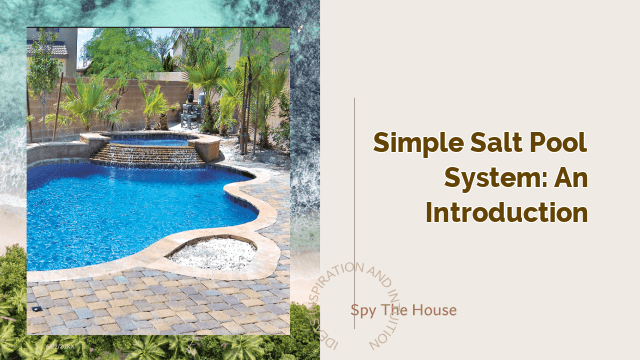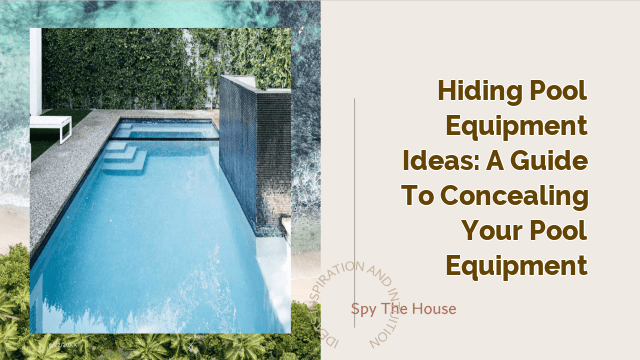Simple Salt Pool System: An Introduction
If you have a swimming pool, you know how important it is to keep it clean, clear, and safe for swimming. One of the most popular ways to maintain a pool is by using a saltwater system. A saltwater pool is a pool that uses a simple salt pool system to create chlorine instead of adding it directly. This system is gaining popularity among pool owners for its simplicity, cost-effectiveness, and low maintenance. In this article, we will explain what a simple salt pool system is, how it works, and the benefits of using it.
What is a Simple Salt Pool System?
A simple salt pool system is a way to chlorinate your pool using salt. Instead of adding chlorine directly to the pool, a saltwater system uses a process called electrolysis to convert salt into chlorine. The system includes a salt cell, a control unit, and a saltwater generator. The salt cell is installed in the pool’s plumbing system and is responsible for converting salt into chlorine. The control unit regulates the chlorine production, and the saltwater generator is used to dissolve salt into the pool water.
How Does a Simple Salt Pool System Work?
The process of converting salt into chlorine is called electrolysis. The salt cell, which is installed in the pool’s plumbing system, contains a series of titanium plates coated with a thin layer of precious metals. When saltwater passes through the cell, an electrical charge is applied to the plates, causing the salt in the water to break down into its component parts: sodium and chloride. This process creates hypochlorous acid, which is the same chemical produced when chlorine is added directly to the pool.
The Benefits of a Simple Salt Pool System
There are several benefits to using a simple salt pool system:👍 A saltwater pool is gentler on the skin and eyes compared to a traditional chlorine pool.👍 A saltwater pool is easier to maintain compared to a traditional chlorine pool.👍 A saltwater pool is cost-effective in the long run.👍 A saltwater pool system does not require the storage or handling of hazardous chemicals.👍 A saltwater pool system is environmentally friendly as it reduces the need for chemical disposal.
How to Maintain a Simple Salt Pool System
Maintaining a simple salt pool system is relatively easy. Here are some tips to help you keep your pool clean and clear:
1. Check the Salt Levels
It is essential to check the salt levels regularly to ensure proper chlorine production. The ideal salt level is between 2700 and 4500 ppm (parts per million).
2. Clean the Salt Cell
The salt cell should be cleaned at least once a year to remove any buildup of calcium or other minerals. A dirty salt cell can affect chlorine production and result in poor water quality.
3. Monitor the pH Levels
The pH level of the pool water should be between 7.2 and 7.8. High pH levels can reduce chlorine production, while low pH levels can cause corrosion to the pool’s surfaces.
4. Run the Pump and Filter Regularly
Running the pump and filter regularly helps to circulate the water and remove debris from the pool. It is recommended to run the pump for at least 8 to 12 hours a day.
Common Questions About Simple Salt Pool Systems
Here are some common questions that people ask about simple salt pool systems:
1. How much salt do I need for my pool?
The amount of salt you need depends on the size of your pool. You can use a salt calculator to determine how much salt you need.
2. Do I still need to add chlorine to my pool?
No, you do not need to add chlorine directly to your pool if you have a saltwater system. The salt cell will produce chlorine for you.
3. Can I convert my traditional chlorine pool to a saltwater pool?
Yes, you can convert your traditional chlorine pool to a saltwater pool. However, it is recommended to consult with a professional pool technician to ensure a proper conversion.
Conclusion
A simple salt pool system is an excellent way to keep your pool clean, clear, and safe for swimming. It is a cost-effective, low-maintenance, and environmentally friendly alternative to traditional chlorine pools. By following the maintenance tips mentioned above, you can ensure the proper functioning of your saltwater pool system. If you have any questions, consult with a professional pool technician.






